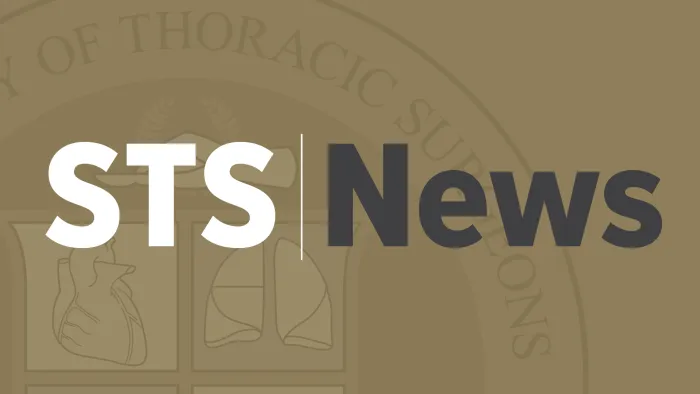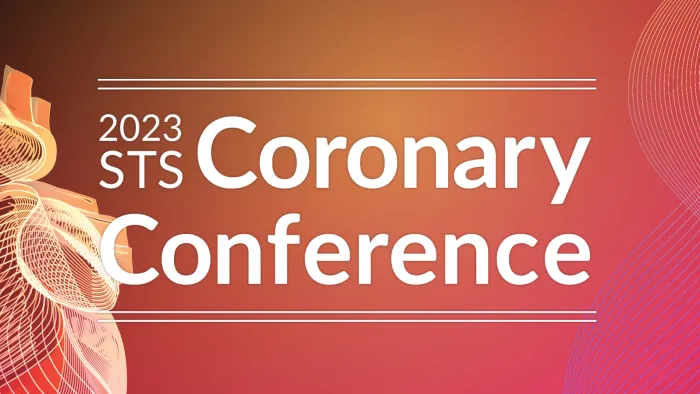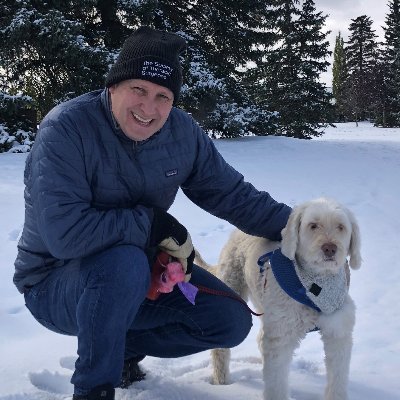Latin America Cardiovascular Surgery Conference Makes a Resounding Return
The Latin America Cardiovascular Surgery Conference made a strong comeback in December after the COVID-19 pandemic shut down the in-person program for the last three years.
More than 300 surgeons, trainees, and industry representatives gathered in Cartagena, Columbia, for 2 solid days of education, discussion, and networking.
The conference emphasized cultivation of up-and-coming surgeons: 75 received a scholarship to attend. Supporting their work, the crowd browsed through more than 60 poster presentations and listened attentively to presentations of new research and surgical techniques with the aim of improving surgery and related care. Nearly one-third of attendees participated in the Residents Symposium.
Another 100 attendees gathered at the conference’s symposium “Women of the World in Cardiac Surgery: Bringing Balance to Our Field.” The 2022 session was a milestone—the first time that attendees from three continents convened to talk about challenges, opportunities, and barriers facing women in the surgical profession.
One of the most popular features of the conference focused on training for the latest surgical techniques and devices. Edwards Lifesciences, Artivion, and Terumo Aortic sponsored hands-on wet labs on mitral and tricuspid valve repair and replacement, the Ross procedure, and a comprehensive overview of innovative approaches to aortic surgery.
Catch up with conference activity, photos, and recollections by browsing #LatAmCardiac2022.
AQO Proves a Valuable Resource for Data Managers
AQO was held in October 2022 to help data managers from surgical teams to effectively utilize the STS National Database™ as part of their work to improve clinical outcomes and patient safety. Data managers learned from surgeon leaders, data managers, and Database platform experts, and expanded their knowledge of the newest research discoveries and clinical guidance. Experts also presented four learning tracks to master each component of the Database: Adult Cardiac, Congenital, General Thoracic, and Intermacs/Pedimacs.
The Database puts unique analytical power in the hands of individual institutions. STS is dedicated to helping users master the Database to assist in each institution’s work for continued analysis of outcomes and perpetual efforts for improvement.
In addition, virtual AQO access also brings users the opportunity to attend the “AQO Hot Topics” webinar for each Database registry in January 2023. Speakers from the actual meeting will return and answer questions from virtual attendees.
The Resilient Surgeon Podcast Releases New Episodes
Do not miss The Resilient Surgeon podcast, now in its second season! This STS podcast has been a smash hit with audiences who appreciated the insights they could apply to their lives inside and outside the OR.
“The choice of guests featured this season parallels a paradigm I developed called ‘Best Self Pie,’” said Michael A. Maddaus, MD, host of The Resilient Surgeon. “I prefer the term ‘best self’ to the word ‘wellness’ because it is an intuitive and personal reference point that we all have—if we are aware enough."
The first piece of the “pie”—individual habits and activities such as sleep, diet, exercise, gratitude, and connection with others—were covered in the podcast’s first season. Season 2, which began airing in August, covers the additional pieces—self-awareness, purpose, and connection at work and home.
Listeners say they can truly relate to the biweekly episodes because they’ve lived the same experiences. More recent episodes included:
Rich Diviney, retired US Navy Seal officer
Commander Diviney also authored The Attributes, 25 Hidden Drivers of Optimal Performance. Drawing from his 20-plus years of experience in the Navy, Diviney came to understand that even individuals at the highest levels of physical and mental capabilities can sometimes fail to perform in specific situations. He determined that an individual’s ability to succeed is determined by attributes, not skills. Attributes such as patience, resilience, situational awareness, and adaptability inform behaviors, and each person has a unique combination of attributes that dictates how they behave, react, and perform. Diviney shares how his time with the Navy Seals helped him develop his strongest attributes and how others can come to understand their own. Through careful examination of these attributes, people can build better relationships and teams and ultimately unlock their potential.
Brian Little, PhD
Dr. Little is a world-renowned psychologist and an expert on personalities. He has written three bestselling books on personality and has a TED Talk called “Who Are You, Really?” that has been viewed more than 20 million times. He was voted a favorite professor at Harvard University from 2002-2004 and is current professor at the University of Cambridge. In the podcast, he discusses the importance of self-awareness and how understanding our own personality traits can help us make better, more meaningful connections with those around us at work and at home. Learn about the Big Five Personality Traits—openness, conscientiousness, extraversion, agreeableness, and neuroticism—and the profound impact they can have on how our lives unfold and flourish. Drs. Maddaus and Little share examples of these different personality traits and provide insights into how we can harness the unique qualities which truly allow us to be our best selves.
Christine Porath, PhD
Professor Porath is an associate professor at Georgetown University McDonough School of Business. She has dedicated her career to understanding the business and personal impacts of how people treat one another in the workplace and how the influence of leaders plays a huge role in happiness and engagement at work. The need for human connection is part of our genes; Porath’s work identifies today’s modern technologies and self-sufficient mindset as disconnecting factors that lead to increased anxiety, depression, and other mental health challenges. She is a frequent contributor to the Harvard Business Review and has authored articles in the New York Times, Wall Street Journal, and Washington Post.
The Resilient Surgeon is part of STS’ Surgical Hot Topics ongoing podcasts. Subscribe via your favorite podcast app, or find episodes at sts.org/podcast. Social media postings about The Resilient Surgeon series will include the hashtag #BeYourBestSelf.
Save the Date for the 2023 Coding Workshop
Health Information Management professionals with proficient coding skills are a must for any practice. Their work analyzing clinical statements and assigning standard codes according to the widely used classification system has signficant impact on maximizing reimbursement. Industry and government data collection used for research, resource allocation, and other purposes also relies heavily on information generated by coding professionals.
Learn the latest coding changes for 2023 by attending or sending your coders to the 2023 STS Coding Workshop: Best Practices for Cardiothoracic Surgery. Taking place virtually February 10 – 11, this 2-day workshop will address new and revised codes affecting cardiothoracic surgical practices. The event will feature live sessions at conveniently scheduled times as well as recorded sessions that registrants can watch at their convenience. Learn more at sts.org/codingworkshop.
Boot Camp Training Gives Surgeons High-Intensity Simulation
Sixty first-year residents took a major step forward in cultivating their surgical skills at STS Boot Camp this past fall.
Supervised by 70 surgical leaders from throughout the country, residents were introduced to simulation learning that replicated the OR environment for cardiac and general thoracic procedures. Participants rotated through six immersive, hands-on sessions for cardiopulmonary bypass, vessel anastomosis, open lobectomy/hilar dissection, diagnostic and therapeutic endoscopies, robotic lobectomy/hilar dissection, wire skills, and transcatheter aortic valve replacement. Residents received personalized one-on-one attention to point them on the path to proficiency through the lengthy training ahead.
The educational event, previously hosted by the Thoracic Surgery Directors Association, was made possible through generous
industry donations.
Applications Due February 1 for 2023 STS Leadership Institute
As the 2022-2023 class of the STS Leadership Institute concludes its curriculum in late January, a new cohort will soon be chosen for 2023-2024.
Applications opened in December for the curriculum, which starts with the first virtual session on March 23. The STS Leadership Institute develops skills for cardiothoracic surgeons that have become vital as healthcare delivery grows more complex and rapidly transforms. Physicians who have the necessary leadership skills are essential for medical teams to adapt and work together effectively in order to provide the best patient care.
The STS Leadership Institute is targeted for early career (0-7 years in practice) and mid-career (8-15 years in practice) surgeons who are STS members. It includes five events: three virtual sessions and two in-person meetings. The capstone event will take place in San Antonio, Texas, in conjunction with STS 2024. Selected applicants are required to participate in all five events of the series.
Participants will work in tracks specific to their career standing and will have ample time to interact with the program’s faculty of prestigious leaders. Course Directors for the 2023-2024 program are Mara B. Antonoff, MD, David T. Cooke, MD, Dawn S. Hui, MD, Anita R. Krueger, MD, Tom C. Nguyen, MD, and Ram Kumar Subramanyan, MD, PhD. Now in its fourth year, the STS Leadership Institute teaches key physician leadership skills that can influence career progression.
Applications are due online by Wednesday, February 1 and can be submitted at sts.org/leadershipinstitute-apply.
Step Up and Mentor Early Career Surgeons
The STS Board of Directors urges everyone in an STS leadership role to volunteer with STS’ Mentorship Program. Trusted advisors are needed and vital to raise the next generation of surgeons.
Seasoned surgeons are quick to credit those who mentored them along the way, and STS seeks to build these same relationships for up-and-coming surgeons who will no doubt face the rigors of the profession. The program matches trainees and younger surgeons with mid- or later-career surgeons who share their clinical or research interests and/or have been through similar experiences or challenges.
The Mentorship Program launched in 2021 and has received numerous requests from early career surgeons for guidance, advice, and collaboration to reach their career goals.
A few weeks after applications are submitted, STS matches mentees with mentors and facilitates initial contact by email. After that, the mentor and mentee will drive their own experience and how they communicate.
Sign up through the easy-to-use mentorship portal, sts.org/sts-mentorship-program. For more information about the program, contact mentorship@sts.org.
Promising Physicians Awarded Looking to the Future Scholarships
STS congratulates the following medical students and general surgery residents who will receive Looking to the Future (LTTF) Scholarships in 2023.
LTTF Medical Student Scholars
Nishant Agrawal
University of Pittsburgh School of Medicine
Adham Ahmed
CUNY School of Medicine - New York, NY
Alan Amedi
Emory School of Medicine
Mohammad Arammash
University of California San Francisco
Philip Broughton
University of South Carolina
Lin Chen
Case Western Reserve University
Juliana Cobb
University of Louisville School of Medicine
Abeer Dagra
University of Florida
Tobias Fauser
University of Arizona COM - Tucson
Yan Gernhofer
University of the Incarnate World School of Osteopathic Medicine, San Antonio
Carter Glenn
University of Cincinnati College of Medicine
Adam Kiridly
Donald and Barbara Zucker School of
Medicine at Hofstra/Northwell
Ryan Kramer
Duke University School of Medicine
Anson Lee
University of Hawaii John A. Burns
School of Medicine
Hanna Mandl
David Geffen School of Medicine at UCLA
Araiye Medlock
University of California, Davis
Pournika Muniyandi
University of Missouri - Kansas City
School of Medicine
Ayesha Ng
David Geffen School of Medicine at UCLA
Xuan-Mai Nguyen
Carle Illinois College of Medicine
John Nonu
University of Utah School of Medicine
George Olverson
University of Rochester School of
Medicine and Dentistry
Jay Patel
California University of Science and Medicine
Adegbemisola Perkins
University of Tennessee Health
Science Center
Ryan Rebernick
University of Michigan
Natalia Roa-Vidal
University of Puerto Rico Medical Science Campus
Natalie Schudrowitz
University of Wisconsin School of Medicine and Public Health
Shwetabh Tarun
University of Pittsburgh School of Medicine
Allie Thompson
University of Michigan
Lamario Williams
University of Alabama at Birmingham
LTTF Resident Scholars
Farshad Amirkhosravi, MD
Houston Methodist Hospital
Adam Awe, MD
University of North Carolina - Chapel Hill
Louisa Bai, MD
Washington University in St. Louis
Kian Banks, MD
UCSF - East Bay
Sean Burgwardt, DO
Saint Mary's Hospital - Connecticut
Ifeanyi Chinedozi, MD
University of Maryland
Michael Eisenberg, MD
University of Texas Health Science Center at Houston
Katherine Foley, MD, MPH
LSU New Orleans
Kathleen Fuentes, MD
Lahey Hospital and Medical Center
Hiba Ghandour, MD
Duke University Hospital
Gianmarino Gianfrate, DO
Mercy Health at St. Elizabeth Hospital - Ohio
Douglas Gouchoe, MD
Wright-Patterson Medical Center
Elaine Griffeth, MD
Mayo Clinic - Rochester
William Head, MD
The Ohio State University
Ryan Holcomb, DO, MPH
Penn State Milton S. Hershey Medical Center
Lauren Johnson, MD
University of Arkansas for Medical Sciences
Jessica Katsiroubas, MD
New York Presbyterian Brooklyn Methodist
Alixandra Killian, MD, MPH
University of Alabama at Birmingham
Eleanor Kitchell, MD
University of Arizona - Phoenix
Nicole Lin, MD, MPH
Westchester Medical Center - New York Medical College
Brandon Peine, MD
East Carolina University
Terrance Peng, MD, MPH
UCLA Medical Center
Ryan Randle, MD
Oregon Health & Science University
Marisa Sewell, MD
Oregon Health & Science University
Klaudiusz Stoklosa, MD
Northern Ontario School of Medicine
Nikia Toomey, MD
University of Tennessee Health Science Center - Memphis
Kaity Tung, MD
SUNY - Buffalo
Kevin Wang, MD,
University of Arizona - Tucson
Noah Weingarten, MD
Cleveland Clinic Foundation - University of Pennsylvania Research
Bobby Zhang, MD
Madigan Army Medical Center - 88th Surgical Operations Squadron
They were selected based on their clinical and research achievements and their dedication to advance in the field. Although STS received applications from many worthy candidates, priority was given to applicants who have not attended a national cardiothoracic surgery meeting or received another CT surgery meeting scholarship.
Future surgeons need to be nurtured, mentored, and inspired to undergo the lengthy training that is required to enter the field. LTTF Scholarship winners will receive unique mentorship to develop their knowledge and surgical skills and encourage them to pursue careers as cardiothoracic surgeons. Learn more at sts.org/lttf.



 After his fellowships, he practiced at Northwestern University Evanston Hospital in Illinois before returning to his native Canada at Foothills Medical Center, where he headed the clinical and academic sides of the Department of Surgery from 2016 to 2020.
After his fellowships, he practiced at Northwestern University Evanston Hospital in Illinois before returning to his native Canada at Foothills Medical Center, where he headed the clinical and academic sides of the Department of Surgery from 2016 to 2020.